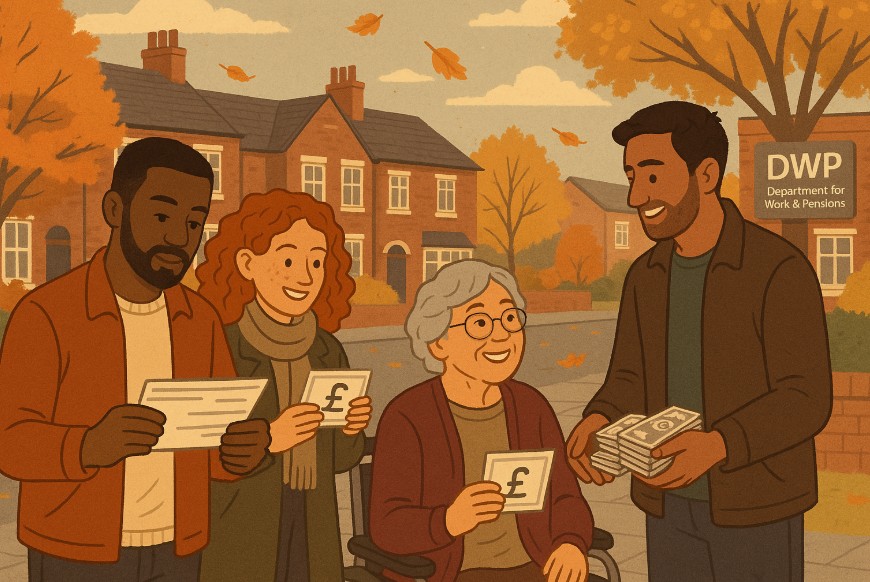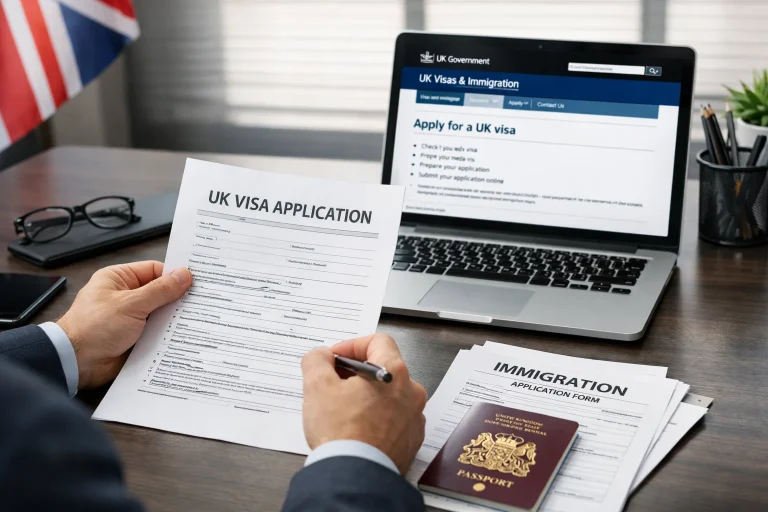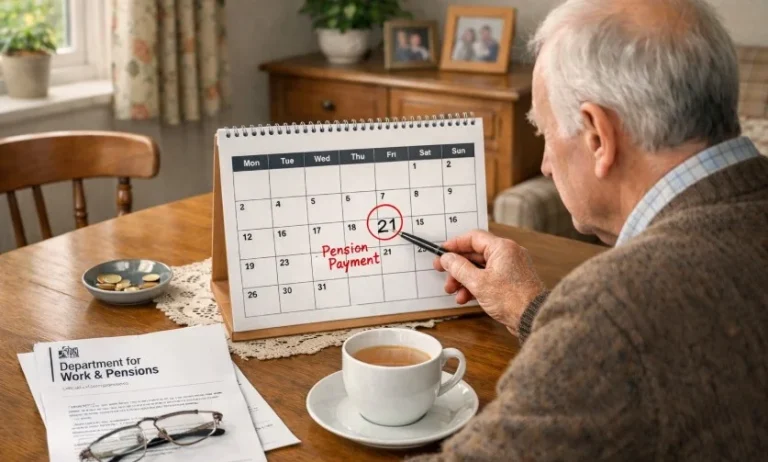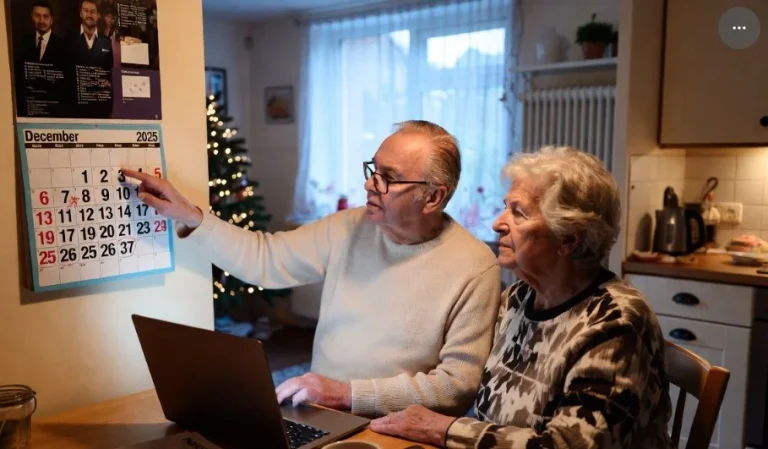The rising cost of living in the UK has prompted the government to issue targeted financial support for vulnerable groups.
One such initiative is the Department for Work and Pensions (DWP) £299 Cost of Living Payment, aimed at individuals receiving specific benefits.
This guide outlines who qualifies for the payment, when it’s issued, and how it supports low-income households. Understanding the eligibility criteria ensures that those entitled do not miss out on this essential financial assistance.
What Is the DWP £299 Cost of Living Payment?
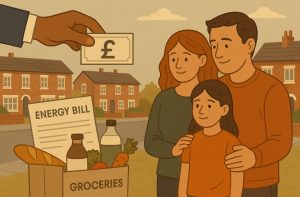
The Department for Work and Pensions introduced the £299 Cost of Living Payment as the third and final instalment of the government’s £900 support package to help low-income individuals and households manage the rising cost of living. This payment complements previous instalments of £301 and £300 issued earlier in the same tax year.
It was specifically targeted at individuals receiving means-tested benefits and was paid automatically without the need for an application. The payment is not taxable and does not affect existing benefits or tax credits.
It is designed to help eligible individuals meet everyday expenses such as utilities, groceries, transport, and housing costs.
Who Qualifies for the £299 DWP Cost of Living Payment?
To qualify for the £299 payment, individuals must have been in receipt of at least one qualifying benefit or tax credit during the eligibility window of 13 November to 12 December 2023. This includes both Department for Work and Pensions and HM Revenue and Customs-administered benefits.
Qualifying benefits include:
- Universal Credit (excluding those with a ‘nil award’ during the assessment period)
- Income-based Jobseeker’s Allowance (JSA)
- Income-related Employment and Support Allowance (ESA)
- Income Support
- Pension Credit
- Child Tax Credit
- Working Tax Credit
Applicants were not eligible if they were only receiving:
- New Style ESA
- Contributory ESA
- New Style JSA
In joint claims (for example, with Universal Credit or Tax Credits), only one payment of £299 was issued to the household. The amount is issued through the same bank account used for receiving benefits.
When Will the £299 Payment Be Made in 2024?
The DWP began processing and distributing the payments between 6 February and 22 February 2024. Those qualifying through HMRC tax credits received their payments from 16 February to 22 February 2024.
Most payments were successfully made within this window, though delays were possible due to bank account changes or late awards of benefits.
The following table shows the payment dates and eligibility periods for all recent cost of living payments:
Cost of Living Payments by Universal Credit Eligibility
| Amount | Eligibility Period | Payment Dates |
| £326 | 26 April – 25 May 2022 | 14 – 31 July 2022 |
| £324 | 26 August – 25 September 2022 | 8 – 23 November 2022 |
| £301 | 26 January – 25 February 2023 | 25 April – 17 May 2023 |
| £300 | 18 August – 17 September 2023 | 31 October – 19 November 2023 |
| £299 | 13 November – 12 December 2023 | 6 – 22 February 2024 |
These dates apply to Universal Credit recipients, and a similar schedule was followed for those receiving ESA, JSA, Income Support, and Pension Credit.
How Does Eligibility Differ Between Universal Credit, Pension Credit, and Tax Credits?
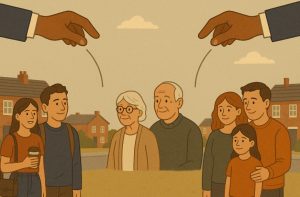
Eligibility rules vary depending on the type of benefit. Each category has specific criteria and deadlines that determine whether the claimant receives the payment. The following table outlines the distinctions.
Comparison of Eligibility by Benefit Type
| Benefit Type | Eligibility Condition | Payment Dates |
| Universal Credit | Assessment period must end within eligibility window | 6–22 Feb 2024 |
| Income-based ESA, JSA, Income Support, Pension Credit | Must receive any amount during the qualifying dates | 6–22 Feb 2024 |
| Child or Working Tax Credit | Must receive payment from HMRC for any day in the qualifying window | 16–22 Feb 2024 |
If a person received both tax credits and a qualifying benefit, they were paid only once, usually through DWP.
What Happens If You Share a Claim or Your Circumstances Changed?
In joint claims, such as for Universal Credit or Tax Credits, only one payment of £299 is issued per household. The payment is made using the same bank account used for the main benefit payment.
Some changes in circumstances could delay or affect eligibility:
- Switching the account your benefit is paid into
- A temporary change in income or savings
- A sanction during the eligibility period resulting in a nil award
- Addition or removal of a partner from the claim
Even in the case of a nil award, some exceptions applied. Individuals could still qualify if the benefit amount was reduced due to:
- Deductions for rent arrears
- Advance payments or loans
- Repayments for other benefit overpayments
- Hardship payments for basic needs like food and hygiene
The key factor is that entitlement, even if minimal, was still recorded during the eligibility period.
Who Will Not Receive the £299 Payment and Why?
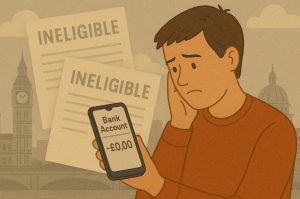
Although the £299 Cost of Living Payment was designed to support millions of low-income households across the UK, not everyone receiving benefits qualified. Understanding the reasons behind ineligibility can help individuals determine their status or take steps to remain eligible for future support.
Nil Award During the Qualifying Period
One of the most common reasons for not receiving the payment was having a ‘nil award’ during the relevant Universal Credit assessment period (13 November to 12 December 2023).
A nil award means that a person was technically entitled to Universal Credit but did not receive a payment due to changes in their financial situation.
This can occur when:
- Earnings temporarily increased, resulting in no benefit payment
- Additional income or a second job was declared during the period
- The partner’s income pushed the household earnings above the threshold
When Universal Credit is calculated at £0 due to income, claimants are automatically excluded from that payment cycle unless certain exceptions apply.
Sanctions or Deductions
Claimants who were sanctioned by the DWP for not fulfilling their claimant commitments (such as missing job centre appointments or failing to apply for work) may have received a nil award. This sanction period can result in the full suspension of payments and affect eligibility for any cost of living support.
However, there are exceptions. Individuals may still receive the £299 payment if the benefit was reduced or stopped due to:
- Advance repayments (such as for budgeting loans or hardship funds)
- Rent arrears or other third-party deductions
- Hardship payments granted due to financial emergencies (e.g. housing, heating, or food costs)
In these cases, even if the final benefit amount was very low or £0, the entitlement was technically maintained, which means the individual could still qualify.
Receiving Non-Qualifying Benefits
Not all benefits counted toward eligibility for the DWP £299 Cost of Living Payment. People who were only receiving non-means-tested benefits were not eligible. This included:
- New Style Employment and Support Allowance (ESA)
- New Style Jobseeker’s Allowance (JSA)
- Contributory ESA
These benefits are based on an individual’s National Insurance contributions rather than income level, so they fall outside the scope of means-tested cost of living support.
It’s important to distinguish between the income-related and contribution-based versions of the same benefit. Only the income-based versions qualified for the payment.
Tax Credits Below Minimum Threshold
Individuals receiving only tax credits (Child Tax Credit or Working Tax Credit) from HMRC were also subject to eligibility restrictions. If their entitlement for the tax year was below £26, they were not eligible for any Cost of Living Payment.
This threshold was set to ensure that only households genuinely reliant on tax credits for income support would qualify.
Duplicate Payments Across DWP and HMRC
Some individuals receive both tax credits from HMRC and a qualifying benefit from the DWP. In these instances, only one Cost of Living Payment was issued to avoid duplication. The payment was usually made by DWP.
If someone received the £299 payment from DWP, they would not get an additional one from HMRC, even if they qualified under both systems.
Timing of Benefit Claims
In some cases, people who recently started claiming a qualifying benefit may have missed the eligibility window. For example:
- A new Universal Credit claim made after 12 December 2023 would not count
- A delay in the processing of a claim could result in missed eligibility
These individuals might still qualify for future payments if new cost of living support measures are introduced in upcoming financial years.
Bank Account or Personal Information Errors
Although not strictly a disqualifying factor, incorrect bank details or administrative errors can lead to non-receipt of payments. If DWP or HMRC attempted to make a payment to an outdated account, it may be delayed or returned. In such cases, claimants should promptly update their details and report the issue.
Are There Additional Cost of Living Payments Available in the UK?
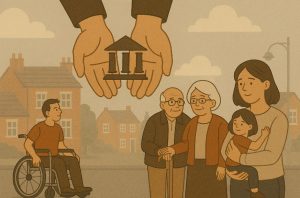
Aside from the £299 payment, the government issued additional cost of living support aimed at specific groups. These include payments to disabled individuals and pensioners.
Disability Cost of Living Payments
People receiving qualifying disability benefits were entitled to two separate payments of £150. These included recipients of:
- Personal Independence Payment (PIP)
- Disability Living Allowance (DLA)
- Attendance Allowance
- Armed Forces Independence Payment
- Constant Attendance Allowance
Payment dates were:
- 20 June to 4 July 2023 for those qualifying by 1 April 2023
- 20 September to early October 2022 for those qualifying by 25 May 2022
Payments were made automatically, and no application was required.
Pensioner Cost of Living Payments
Pensioners eligible for Winter Fuel Payments for either winter 2022–2023 or 2023–2024 received an additional £150 or £300, depending on their household circumstances and birth year. This was added automatically to their Winter Fuel Payment and was separate from the £900 support package.
How Can You Report a Missing £299 Cost of Living Payment?
If a person believes they were eligible but did not receive their payment:
- They should contact the issuing authority: either DWP or HMRC
- Confirm benefit entitlement and eligibility period
- Ensure the correct bank details are registered with the relevant department
- Provide their National Insurance number for verification
Late payments can result from recent benefit claims, changes in circumstances, or administrative delays. The DWP and HMRC offer dedicated online forms and phone lines for reporting missing payments.
Conclusion
The DWP £299 Cost of Living Payment plays a vital role in easing financial pressures for households on means-tested benefits.
With clear eligibility guidelines and automatic disbursement, the government aims to ensure prompt support for those most affected by economic challenges.
Staying informed about future payments and keeping benefit claims current is key to receiving timely assistance. For official updates, the GOV.UK website remains the most reliable resource for cost of living support schemes in the UK.
FAQs About DWP £299 Cost of Living Payment
What is a ‘nil award’ and how does it affect cost of living payment eligibility?
A nil award occurs when benefits are reduced to £0 due to income increases, savings, or sanctions. In most cases, this disqualifies the claimant from receiving the Cost of Living Payment.
Can someone receive more than one Cost of Living Payment at the same time?
No, each eligible household receives one payment per period, even if both partners qualify individually. Payments are not duplicated.
Is the £299 payment taxable or declared as income?
No, the £299 Cost of Living Payment is not taxable and does not need to be declared as income for tax or benefits purposes.
Do changes in bank account details delay the payment?
Yes, if a benefit account was changed shortly before or during the eligibility period, payments may be delayed but will still be issued.
How are Pensioner Cost of Living Payments issued?
They are added automatically to Winter Fuel Payments and paid by the same method, depending on the recipient’s age and circumstances.
Can people who are newly eligible for benefits still receive the payment?
If someone becomes eligible for a qualifying benefit retroactively, they may still receive the payment, though it may arrive later.
How can someone verify that they received the payment?
Check your bank account for a payment marked as “DWP COL” or “HMRC COL.” If it’s missing, contact the relevant department.

